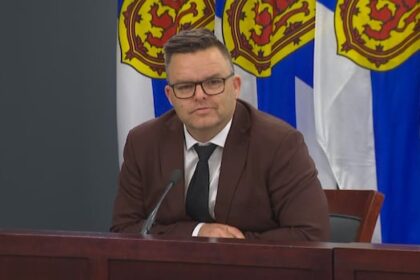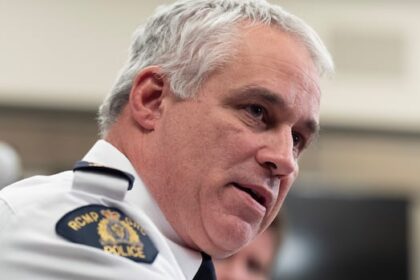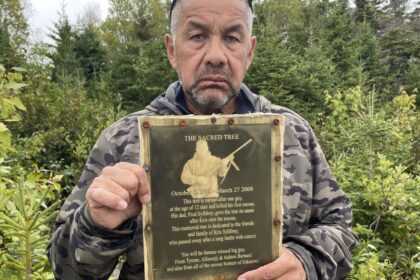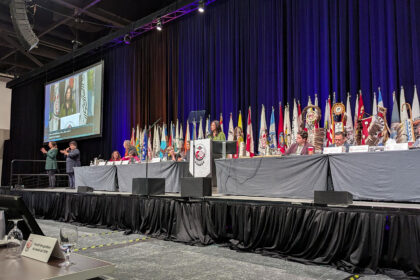The head of the Assembly of First Nations says it’s encouraging the federal government to keep investing in infrastructure projects and “bread and butter” programs in the upcoming budget. At a news conference in Ottawa on Tuesday, National Chief Cindy Woodhouse Nepinak said she’s been lobbying the government to commit money to close socio-economic gaps. The budget ask is meant to address “ issues of substantive equality, such as gaps between First Nations and Canadians on key socioeconomic indicators,” said Woodhouse Neepinak. “These include the basics, clean water, housing, child welfare, policing, and infrastructure to be successful. Reconciliation in our country must create a more equitable and inclusive society by closing these social health and economic gaps. “ Prime Minister Mark Carney said his government will be tabling its first budget this fall, on Nov. 4. Carney has said the budget will include both “austerity” and “investment” as the government looks to rein in operational spending while putting money into projects aimed at growing the economy and ramping up defence spending. On Sunday, the prime minister said the deficit has grown since last year, though he said the specific number will come in the budget. At a closed door summit with Indigenous leaders this summer, Carney said that despite planned cuts to Indigenous Services Canada, programs and services would not decrease, but increase. “ This government will continue to deliver the services for which we are responsible. Okay? We have to do more, not less,” said Carney. “We have to do more, not less. That’s absolutely clear. That’s in social services, that’s in policing, that’s in health, that’s in education.” The AFN pre-budget submission asks for nearly $363 billion over the next several years to fix what decades of underfunding have broken. In its 2025 pre-budget submission, the AFN lays out a sweeping vision that starts with the basics: homes, schools, and roads. The biggest single ask is $135.1 billion for housing to deal with the overcrowding and disrepair plaguing many First Nations communities. That’s followed by $59.5 billion for infrastructure—things like water systems and community buildings—and another $35.5 billion to replace winter roads with all-season access. Education also makes the top five, with nearly $11 billion each for K-12 and post-secondary. Together, these five items account for almost 70 per cent of the total request. But the submission goes far beyond bricks and mortar. The AFN wants billions more for mental health care, policing, and climate resilience, plus support for Indigenous languages, self-government, clean water, and food security. There’s $3.9 billion for language revitalization, $3 billion to build up First Nations police forces, and $1.25 billion for climate action rooted in Indigenous leadership. ITK’s pre-budget submission calls for infrastructure investments Similarly, the Inuit Tapiriit Kanatami’s pre-budget submission is calling on the federal government to make long-term investments to close the deep infrastructure and social gaps in Inuit communities. The ITK’s largest ask is a $75.1 billion infrastructure package over 35 years, including $55.3 billion in capital funding for everything from housing and water systems to airports, clean energy, and schools. The submission also seeks $9.7 billion for an Inuit-specific child-first initiative, designed as a permanent, long-term version of Jordan’s Principle that reflects the realities of Inuit governance and service delivery across the Arctic. Food, language, and health round out the top priorities. ITK is asking for $1.79 billion to launch a school food program across all Inuit Nunangat regions and another $100 million for broader food security efforts—a critical need in a region where nearly three out of four Inuit face food insecurity. They’re also requesting $1 billion to reclaim and revitalize Inuktut, the Inuit language that continues to erode under pressure from French and English-only programming. The list includes $132 million to finally eliminate tuberculosis by 2030, a federal commitment still unmet despite rates more than 300 times the national average. Housing, emergency response and economy top Métis Nations’ priorities Housing also topped the list of needed investments for the Métis National Council in its pre-budget submission. It asked the feds to redirect $1 billion over seven years from existing federal housing funds to Métis governments, allowing them to build and manage homes through their own institutions. The submission also asks for $13.43 billion over a decade to launch a dedicated Métis Health and Wellness Accord to support culturally appropriate care, mental health services, and in-community programs. On the economic front, they’re asking for $34.4 million over ten years to build business directories and a new procurement institute that would help Métis entrepreneurs access government contracts and scale their operations. There’s also a growing concern around climate-driven disasters: the Council is seeking $363.9 million to build emergency response capacity—everything from local command centres to trained staff. Finally, they want $60 million over a decade to fund programs for Métis women and 2SLGBTQ+ citizens, including support for leadership, gender-based violence prevention, and engagement in federal policy. Continue Reading
Assembly of First Nations says its pushing infrastructure money for upcoming federal budget
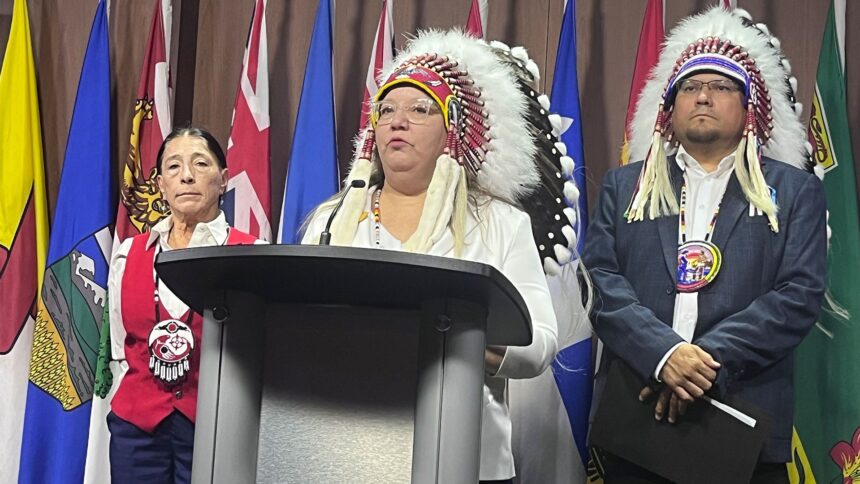
Leave a Comment







